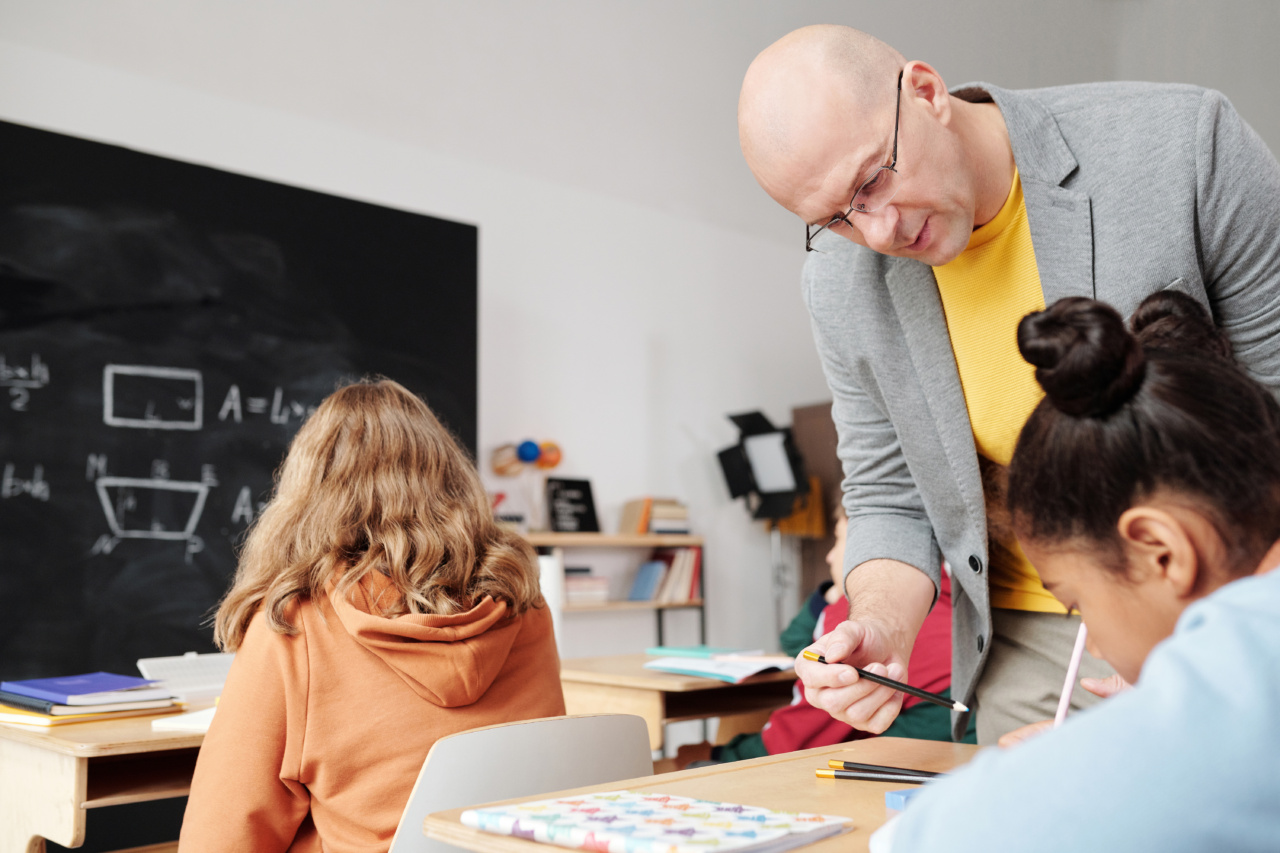Empathy is not just a buzzword or a soft skill; it is an essential social and emotional skill that can greatly impact a student’s success in school.
When students are able to understand and relate to the emotions and experiences of others, it helps them build stronger relationships, navigate conflicts, and perform better academically. In this article, we will explore the importance of empathy in a student’s life and how it can help them excel in school.
The Power of Understanding Emotions
Empathy starts with understanding emotions, both our own and those of others. When students learn to recognize and manage their own emotions, they gain a deeper understanding of themselves and can regulate their behaviors more effectively.
This self-awareness helps them navigate challenges, set realistic goals, and make better decisions.
Additionally, understanding the emotions of others allows students to communicate more effectively and build stronger relationships.
When students can recognize the feelings and needs of their peers, they are better equipped to respond to their emotional cues, offer support, and collaborate effectively. This not only enhances their social interactions but also fosters a more positive and inclusive classroom environment.
Improved Communication and Collaboration
Empathy plays a crucial role in communication and collaboration. When students develop empathy, they become active listeners, paying attention to both verbal and non-verbal cues.
This skill allows them to understand not only what is being said but also how someone feels about it. It helps them respond thoughtfully, show respect, and avoid miscommunication.
In group projects or team-based activities, empathy enables students to appreciate different perspectives and work collaboratively towards a common goal.
By understanding and respecting the needs and ideas of their peers, students can create a more inclusive and productive learning environment. They can also negotiate conflicts effectively, finding solutions that benefit everyone involved.
Enhanced Conflict Resolution Skills
Conflicts are inevitable in any social setting, including school. However, students who have developed empathy are better equipped to resolve conflicts constructively.
They can put themselves in others’ shoes, consider different viewpoints, and find peaceful resolutions that address the needs of everyone involved.
By empathizing with others, students can reduce animosity, build trust, and find common ground. They learn to communicate assertively, expressing their ideas and concerns while remaining open to feedback and compromise.
This not only helps them navigate conflicts within the classroom but also equips them with valuable life skills that can be applied in various personal and professional contexts.
Increased Academic Performance
Empathy not only influences social and emotional well-being but also significantly impacts academic performance. When students feel connected to their peers and teachers, they are more motivated to engage in the learning process.
Empathy fosters a sense of belonging, which creates an environment conducive to academic growth.
When students understand and empathize with others, they can better appreciate the value of diverse perspectives. This broadens their understanding of different subjects, enhances critical thinking skills, and promotes creativity.
By considering alternative viewpoints, students can develop more well-rounded arguments and approaches to problem-solving.
Moreover, empathy cultivates a positive classroom climate where students feel safe to take risks, ask questions, and seek help when needed. It reduces social barriers, allowing students to support and learn from one another.
This collaborative environment facilitates knowledge sharing, enhances learning outcomes, and helps students excel academically.
Empathy-Driven Leadership and Success
Empathy is not just valuable for individual students; it also plays a significant role in developing future leaders.
Empathetic individuals are more likely to demonstrate leadership qualities such as active listening, effective communication, and the ability to motivate and inspire others.
Leaders who possess empathy have a greater understanding of the needs and concerns of their team members. This allows them to provide support and guidance in a way that resonates with others.
Empathetic leaders create a positive work or learning environment, nurture collaboration, and inspire trust and loyalty.
Furthermore, empathetic individuals tend to be more adaptable and open to different ideas and perspectives. They can navigate diverse situations, adapt to change, and make informed decisions that consider the best interests of all stakeholders.
Empathy-driven leaders have a better understanding of the impact their decisions can have on others, leading to more thoughtful and ethical leadership.
The Role of Education in Promoting Empathy
Developing empathy is not an innate ability; it is a skill that can be nurtured and developed through education. Schools play a vital role in fostering empathy by creating a supportive and inclusive environment that encourages empathy as a core value.
Integrating social-emotional learning (SEL) programs into the curriculum can help students acquire essential empathy skills.
Through SEL, students can learn mindfulness, emotional regulation, active listening, perspective-taking, and conflict resolution. Incorporating these skills into classroom activities and discussions provides opportunities for students to practice empathy in real-life situations.
Schools can also encourage empathy by promoting diversity and cultural understanding. Exposing students to different cultures, perspectives, and experiences helps them develop empathy and appreciate the value of diversity.
Celebrating multicultural events, encouraging dialogue, and incorporating diverse literature and resources into the curriculum can broaden students’ understanding of the world and foster empathy.
The Importance of Teacher Empathy
While empathy is essential for students, it is equally crucial for teachers. Teachers who demonstrate empathy create a supportive and inclusive classroom environment where students feel valued and understood.
They make an effort to connect with each student, build positive relationships, and demonstrate understanding and compassion.
Teachers can practice empathy by acknowledging and validating students’ emotions, providing individualized support when needed, and fostering a sense of belonging.
When students feel seen and understood by their teachers, they are more likely to engage actively in their education and perform better academically.
Furthermore, teachers can model empathetic behavior, teaching students by example. By being attentive listeners, showing respect, and addressing conflicts with empathy, teachers help students develop and practice empathy in their own interactions.
Fostering Empathy at Home
Empathy is not solely developed within the school environment; it is also influenced by a student’s home and family life. Parents and caregivers can play a vital role in nurturing empathy in children.
Encouraging open communication and active listening within the family provides a safe space for children to express their emotions.
Parents can help children identify and label their emotions, teaching them how to regulate and express themselves effectively.
Parents can also encourage perspective-taking and empathy by discussing different situations and asking children how they think others might feel. By encouraging children to consider different viewpoints, parents can foster empathy and understanding.
Engaging in volunteer work or community service as a family provides practical experiences where children can witness the impact of empathy. This also teaches children the importance of giving back, supporting others, and addressing social issues.
The Long-Term Benefits of Empathy
Empathy is not a skill limited to academic success; it has long-term benefits that extend into adulthood.
Individuals who have developed empathy are more likely to build healthy and fulfilling relationships, navigate conflicts effectively, and contribute positively to their communities.
Empathy also plays a crucial role in social justice and activism. Individuals who empathize with others are more inclined to understand and address issues related to inequality and discrimination.
By empathizing with marginalized groups, individuals can advocate for change, challenge systemic injustices, and strive for a more equitable society.
Furthermore, empathy is a crucial characteristic in various professional fields such as healthcare, counseling, education, and customer service.
Professionals who demonstrate empathy are better able to understand their clients’ or patients’ needs, provide appropriate support, and deliver more effective services.
Overall, empathy is not just a skill; it is a powerful tool that empowers students to excel in school and beyond. By understanding and connecting with others, students develop a strong foundation for personal and academic success.































